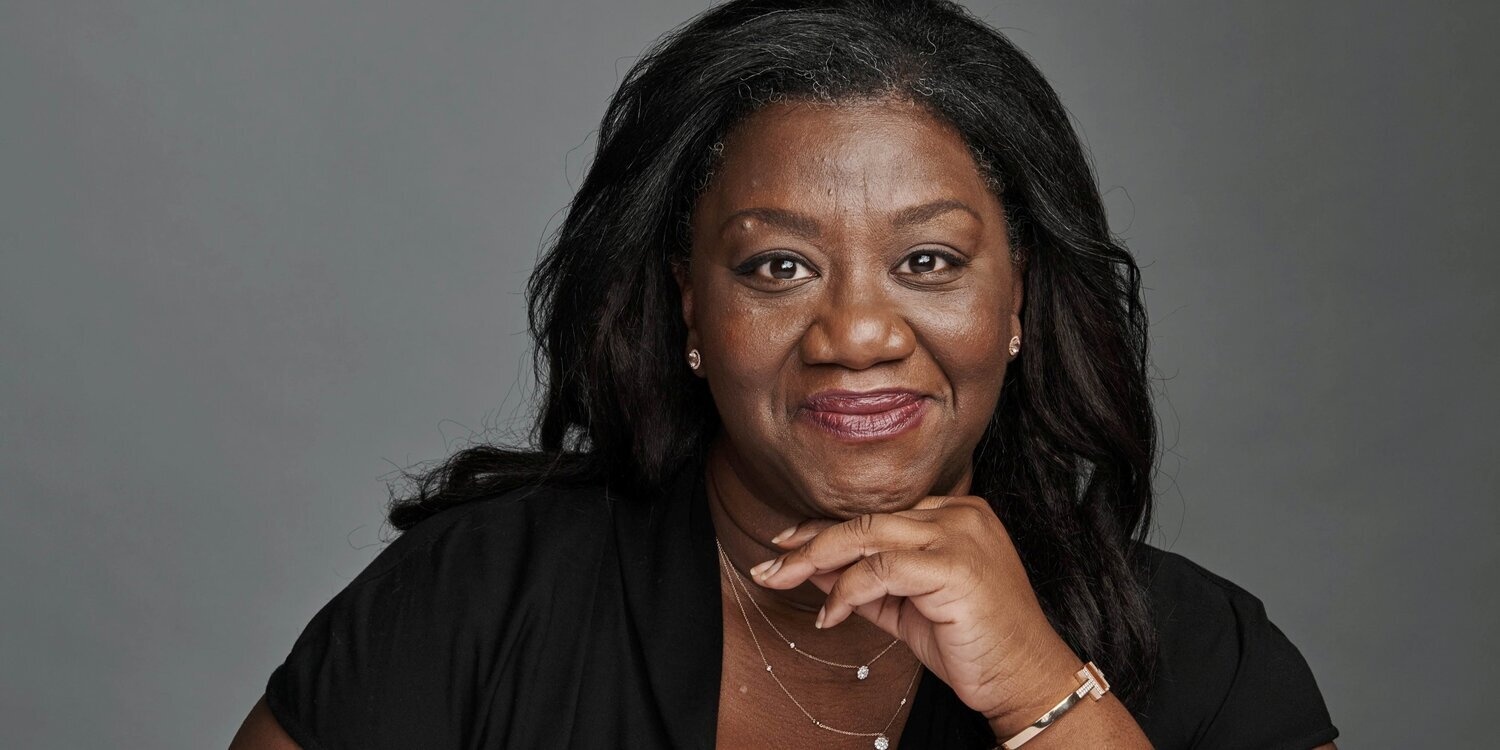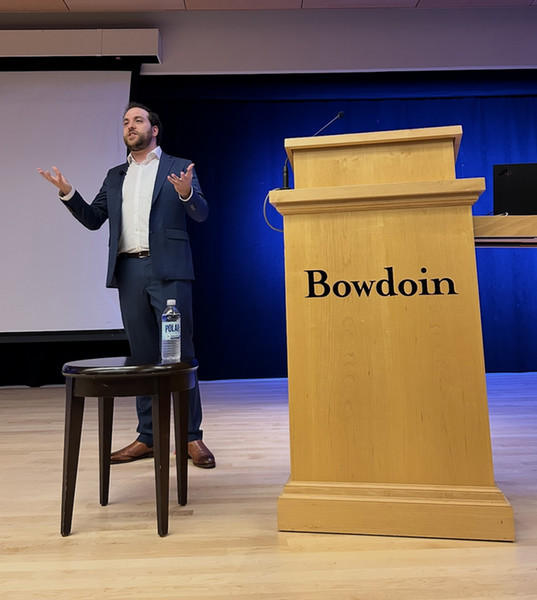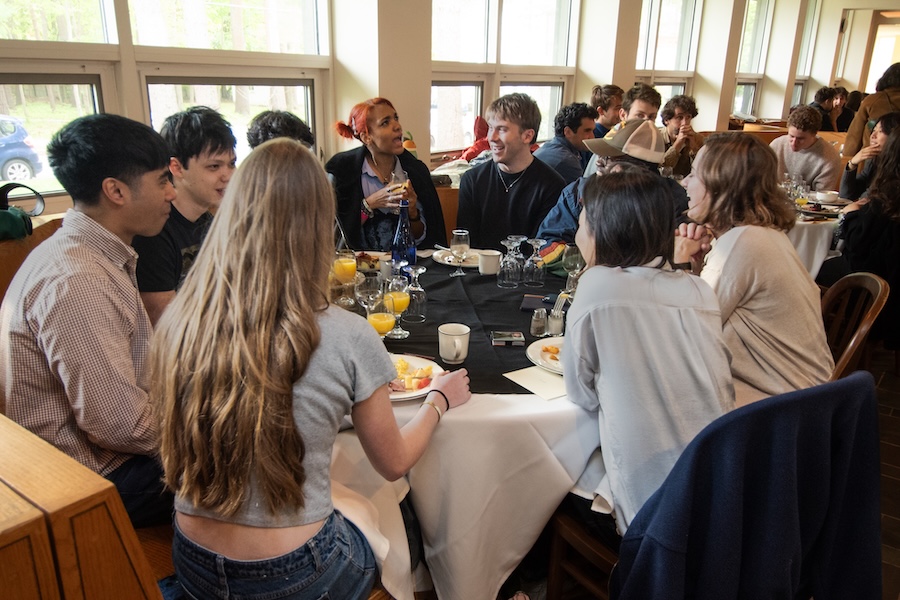Viewpoint Exchange: Loretta Ross on Embracing Call-In Culture
By Rebecca GoldfineHundreds of students, staff, and community members turned out on September 17 to hear reproductive justice and human rights activist Loretta Ross discuss her work to create a more compassionate and just society by “calling in” rather than canceling others.
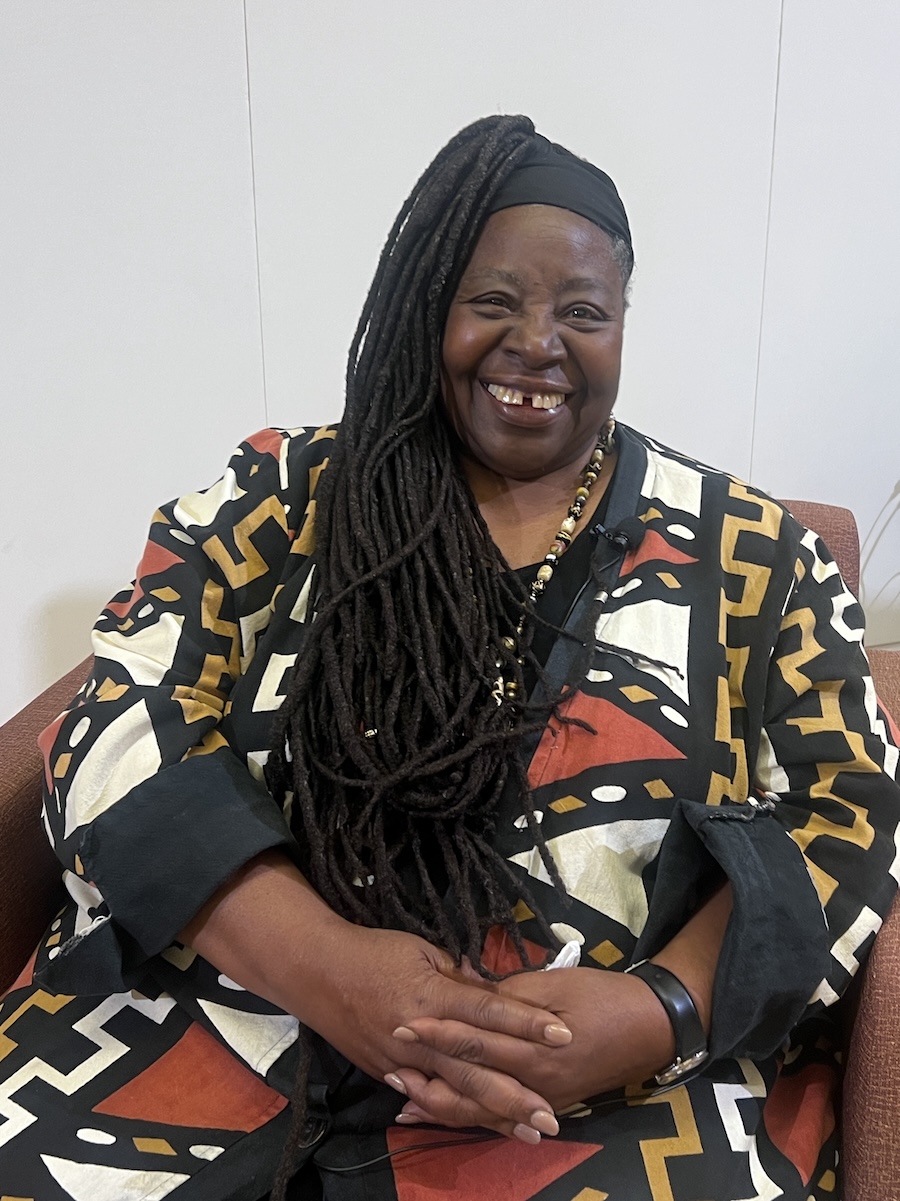
Her visit marked the kickoff of this year’s Viewpoint Exchange, a Bowdoin program launched last year to bring diverse voices to campus and foster open dialogue. The program is part of President Safa Zaki’s “Working Together” initiative, which aims to build and sustain a Bowdoin community grounded in authentic dialogue, constructive engagement, respect for different experiences, and a spirit of generosity and humility.
Answering questions from Bianca Williams, Bowdoin’s Matthew D. Branche Associate Professor of Africana Studies and Anthropology, Ross reflected on her five decades of human rights work, offering lessons on how we might heal our fractured country.
Ross is a pioneer of the “calling in” movement—a response to the shaming and humiliation that define much of today’s “calling out” culture, when people condemn others for having objectionable or offensive views. Calling in, she said, is as essential to today’s human rights struggles as nonviolence was to the civil rights movement.
The idea took root a decade ago when Ross’s grandson introduced her to Facebook. Seeing the ways people attacked one another online, she realized young people were learning “radical politics” without also learning “radical love practices to use those politics responsibly.”
Her recent book, Calling In: How to Start Making Change with Those You’d Rather Cancel, explains how we can adopt this approach. Unlike her earlier works that focused on issues, it considers how activists and organizers actually do the work of solving issues, and how they sustain movements by collaborating with people they would prefer to avoid.
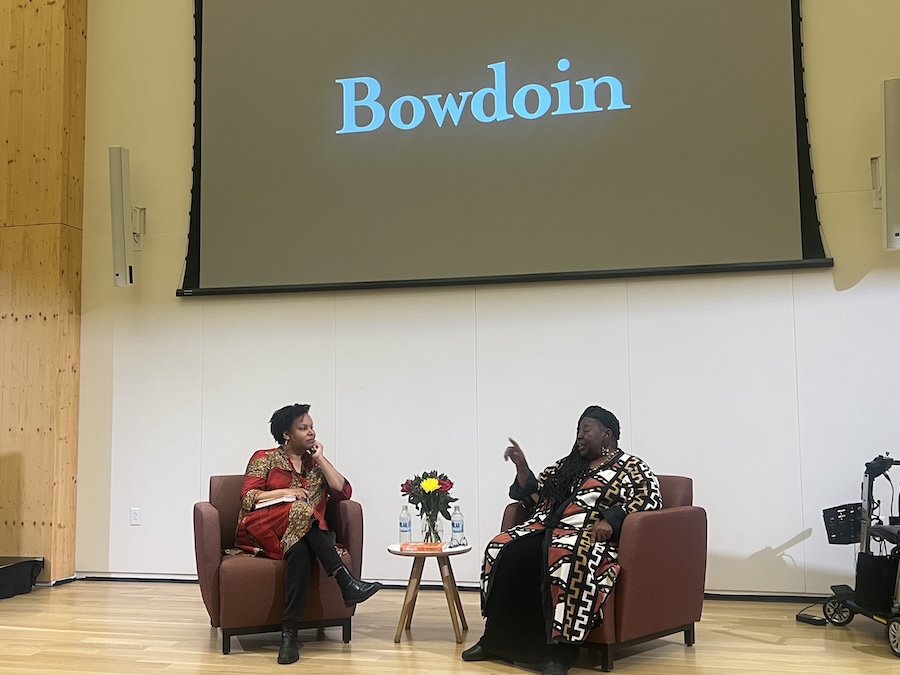
“How many times as a community organizer did I have to work with people who were my nightmares?” she asked. “To bring about change, you don’t have the luxury of only working with people who agree with you.”
Over the course of her career, Ross has taught Black feminist theory to men imprisoned for raping and murdering Black women. She has taught antiracism to women whose relatives were Klansmen. She is well known for bringing Black women into what had been a white-dominated reproductive justice movement.
Before you can call someone in, however, you must call yourself in, Ross said. “Ninety percent of people in movement work are trauma survivors, so we should not be surprised when trauma shows up in the work we do.”
Once you're aware of what could provoke or inflame you, you are better able to respond with calmness, integrity, and intelligence. You have a better chance of seeing the full, complex person in front of you, rather than reducing them to a stereotype that can be disposed of “like a used tissue,” Ross said. “People are far more complicated than the labels you want to attach to them for your convenience,” she added.
Ross illustrated the practice of calling in with a story about her Uncle Frank, who frustrated her by making disparaging remarks about Mexican Americans.
One day she told him, “Uncle Frank, I know you’re a good man. I know you would rush into a burning building to save someone without stopping to ask if they were gay or Mexican or American. So help me reconcile the good man I know with the words coming out of your mouth about people you don’t even know.”
Ross also deploys a tactic she credited to US Secretary of State Henry Kissinger, who always started his diplomatic efforts by chatting with his adversaries about what they had in common, no matter how small.
In the end, Ross urged the audience to reserve “calling out” for those who are intentionally cruel, who abuse power, or who manipulate people and harm them.
In the coming months, the Bowdoin community will have the chance to hear from writers, activists, artists, comedians, and educators on some of our most challenging issues, and to gather for community conversations.
The program is part of President Safa Zaki's “Working Together” initiative to strengthen open discourse, inspire respectful curiosity about difference, and foster a deeper sense of belonging across the Bowdoin community.
The next Viewpoint Exchange talk will be Oct. 22 by Yair Rosenberg, a staff writer for The Atlantic who regularly writes on antisemitism in the modern era and on strategies to combat abuse on online platforms.
Rosenberg's talk will be followed by a community dinner in which audience members are invited to discuss his arguments.
In the end, Ross urged the audience to reserve “calling out” for those who are intentionally cruel, who abuse power, or who manipulate people and harm them.
“But we overuse that tactic with people we should be figuring out how to work with,” she said. “The way to build a movement is not to call people out but to call people in.”
